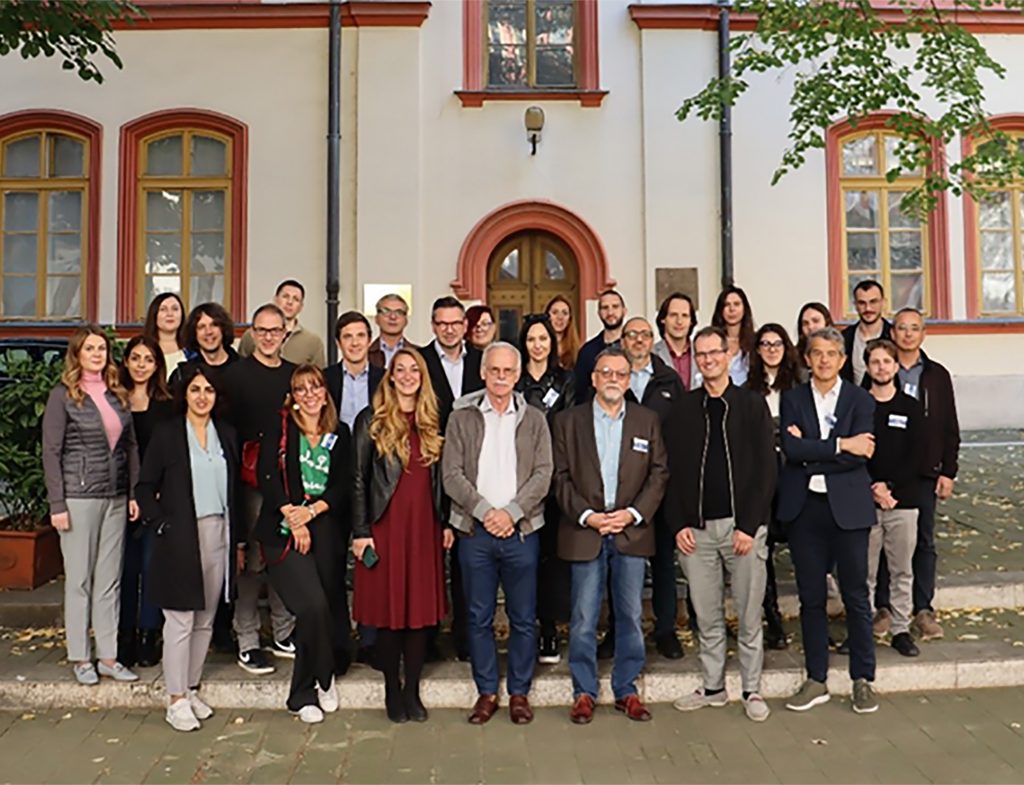Twinning for excellence in non-invasive brain stimulation in Western Balkans
TWINNIBS aims to strengthen the research and innovation capacities to tackle main challenges in the multidisciplinary field of non-invasive brain stimulation (NIBS). NIBS is a set of techniques for transcranial (non-invasive) modulation of the activity in the specific brain areas and the large-scale brain networks to which they contribute.
This is an innovative approach to neuroscience research and, ultimately, the clinical treatment of a wide spectrum of neuropsychiatric conditions. TWNINIBS will be a coordination and support tool to bring NIBS research in Serbia to a new level by partnering with leading European research and innovation (R&I) institutions from Denmark, Italy, Germany, and Austria.

TWINNIBS project is funded under the HORIZON Europe call HORIZON-WIDERA-2021-ACCESS-02, as a HORIZON Collaboration and Support Action under the title “Twinning for excellence in non-invasive brain stimulation in Western Balkans” (project no 101059369). The project duration is 36 months, with a start date of 1 September 2022 and an expected end date of 31 August 2025.
The overarching goal of the TWINNIBS project is to establish the Centre for Non-invasive Neuromodulation at the Institute for Medical Research, University of Belgrade (IMR) in Belgrade, Serbia, as an international centre of excellence in Human Neuroscience focusing on Non-invasive Brain Stimulation (NIBS). The vision of the Centre is to bring together neuroscience researchers with backgrounds in medicine, psychology, engineering, rehabilitation, etc. to join expertise, exchange ideas, and collaborate to foster progress and innovation in the field. To accomplish that, project activities, divided into seven distinct, yet interconnected Work Packages, will encompass set of activities directed to either administrative and managerial or scientific objectives, enhancing the impact of R&I on the economy, industry, and society on the local, regional and EU level.
TWINNIBS focuses on creating opportunities for researchers to work jointly during the project on personalized brain stimulation techniques, along with equipping early-stage researchers with knowledge and experience in the field. Personalized NIBS around which TWINNIBS scientific goals revolve enables modulation of activity in specifically targeted brain areas and networks, thus helps researcher understand brain functioning and mental processes better. Also, it provides insight into tailoring case-specific and consequently more effective treatments for neurological disorders (e.g., Alzheimer’s or Parkinson’s disease).
The TWINNIBS consortium is led by Institute for Medical Research (IMR), University of Belgrade (Republic of Serbia) and comprised of four partners from four EU countries: Denmark (Danish Research Centre for Magnetic Resonance, Region Hovestaden REGION H), Italy (Center for Mind and Brain University of Trento UNITN), Germany (Ludwig Maximilian University of Munich LMU and its affiliated Clinic KUM) and Austria (Centre for Social Innovation ZSI).

TWINNIBS project is funded under the HORIZON Europe call HORIZON-WIDERA-2021-ACCESS-02, as a HORIZON Collaboration and Support Action

“Twinning for excellence in non-invasive brain stimulation in Western Balkans” (project no 101059369)